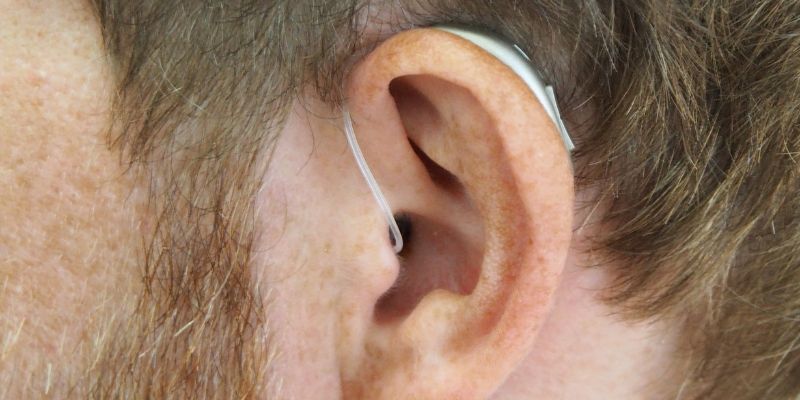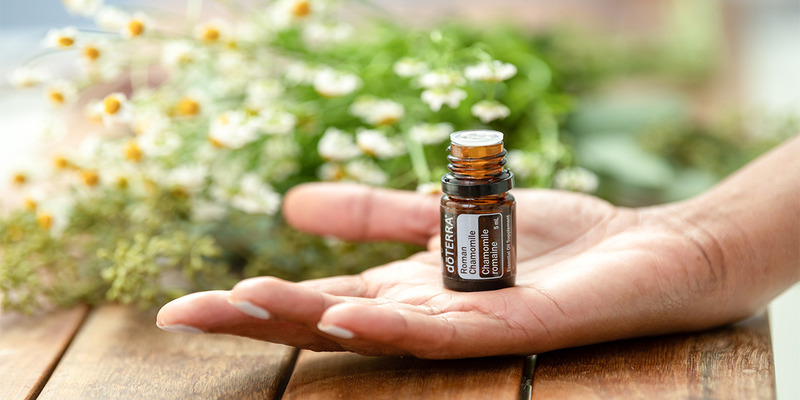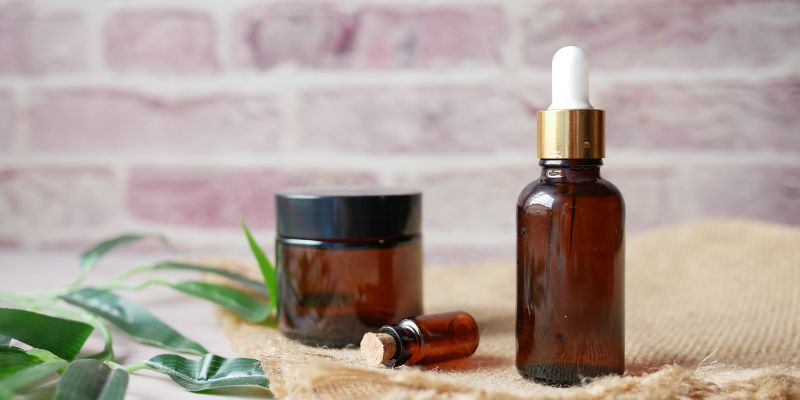Selenium Explored: Health Benefits, Dietary Sources, Recommended Dosage, and Risks
Nov 28, 2023 By Nancy Miller
The trace mineral selenium is often disregarded despite its critical importance to human health. It is present on Earth and mostly makes its way into human diets via plants and the animals that consume them. It is essential for human health, even in small doses. Selenium is an essential mineral for healthy immune system function and protection against free radicals, which may cause a host of illnesses. The thyroid gland, which controls energy production, metabolism, and growth, is also helped by this. For a complete picture of selenium's significance in everyday health, this guide explores its many uses, sources, and safety considerations.

Health Benefits of Selenium
Key Health Benefits of Selenium
Even though selenium is only required in minute quantities, it has several positive effects on health. It is an essential part of a balanced diet because of its effects on the thyroid, immune system, and antioxidant capabilities.
Immune System Enhancement
Selenium helps the immune system, which is one of its most important functions. Helps the body produce white blood cells, which are essential for warding off illness and infections. The immune system may be strengthened in the face of infectious diseases when selenium levels are sufficient. When new health problems crop up all the time, this becomes even more crucial. In addition, selenium aids in reducing inflammation, which is a frequent reaction to many ailments, which means you'll recover faster and be healthier overall.
Antioxidant Properties
An important part of the immune system's antioxidant defense mechanism is selenium. It aids in lowering oxidative stress, which gets its start from an overabundance of free radicals—unstable chemicals that may harm cells, hasten aging, and exacerbate a host of ailments, including cancer and heart disease. This is because selenium aids in the neutralization of free radicals by acting as an enzyme in antioxidant complexes, most notably glutathione peroxidases. In addition to warding against degenerative illnesses, this antioxidant activity helps keep skin healthy, diminishes the telltale symptoms of aging, and encourages a more radiant, younger appearance.
Thyroid Health Support
Metabolism, growth, and core body temperature are all controlled by the little but powerful thyroid gland. The thyroid gland cannot operate correctly without selenium. To make sure the body makes good use of thyroid hormones, it aids in their conversion from an inactive to an active state. Keeping energy levels stable and metabolism under control depends on this conversion. Hypothyroidism and other thyroid dysfunctions may develop in people with selenium deficiencies. Therefore, it is critical for thyroid function and, therefore, general wellness to maintain sufficient selenium levels.
Dietary Sources of Selenium
Plant-Based Sources
There are a number of plant-based foods that are good sources of selenium. The amount of selenium in plant meals may change based on the soil's concentration. One of the best plant sources of selenium is nuts, especially Brazil nuts. You may get your recommended daily allowance from only one or two Brazil nuts. Selenium is also present, although in lower concentrations, in whole grains such as brown rice, whole wheat bread, and oats. A healthy selenium intake may be achieved by eating selenium-containing vegetables such as spinach, lentils, and beans. To acquire enough selenium on a vegan or vegetarian diet, it's important to eat a wide range of plants.
Animal-Based Sources
A great way to get selenium is to eat meals that are made from animals. Seafoods, including prawns, sardines, tuna, and halibut, are great sources of selenium. In addition to selenium, heart-healthy omega-3 fatty acids are included in these choices. Additional healthy sources are eggs, poultry, beef, and turkey. Animal liver, in particular, is an excellent source of selenium. These sources can dramatically help people whose diets consist of animal products get the selenium they need. For a balanced and nutritious diet, it's best to include plant-based meals alongside these sources.

Recommended Dosage of Selenium
Dosage for Different Age Groups
Individuals of different ages have different selenium-recommended dietary allowances (RDAs). Daily guidelines for infants are around 15 micrograms (mcg), which is the lowest amount. The daily recommended intake of selenium for children ages 4–8 is 30 mcg, whereas the recommended intake for children ages 1-3 is around 20 mcg. The dosage has to be between forty and fifty milligrams (mcg) for older kids and teens (ages nine to eighteen). About 55 mcg per day is the typical need for adults, including those who are pregnant or nursing. On the other hand, nursing mothers need around 70 mcg, and pregnant women may require somewhat more, at around 60 mcg. A healthy diet can generally offer these quantities; therefore, taking supplements is usually unnecessary unless your doctor says otherwise.
Dosage Variations by Health Conditions
The amount of selenium needed could change depending on the patient's condition. Since selenium aids thyroid function, those who suffer from certain thyroid disorders may benefit from slightly increased dosages. Nonetheless, a doctor's eye is required for this procedure. But, selenium levels may need to be more strictly monitored by those who have diseases that impact nutritional absorption, such as gastrointestinal issues. Both insufficient and excessive selenium may have negative effects on health; therefore, it's best to talk to a doctor before making any changes to your selenium consumption. The key is moderation, and most people can get all the selenium they need from a varied diet.
Risks and Safety Considerations
Overdose and Side Effects
Overconsumption of selenium, as opposed to selenium obtained via food, may lead to an overdose if the dosage is far higher than what is suggested. Hair loss, irritation, moderate nerve damage, exhaustion, white blotchy nails, gastrointestinal problems, and selenium poisoning are some of the symptoms. Adults should not consume more than 400 micrograms of selenium daily.
Interactions with Medications
The efficacy of several drugs may be affected by selenium interactions. It may, for example, decrease the efficacy of chemotherapy treatments and cholesterol-lowering prescriptions. In contrast, corticosteroids and other drugs have the opposite effect and reduce selenium levels. People who are using blood thinners should also be careful since eating a lot of selenium might make them bleed more easily. To prevent dangerous drug interactions, it is important to tell your doctor about any supplements, including selenium. In conclusion, selenium is vital for health, but users must be careful to maintain a balanced intake while being aware of any interactions and negative effects.
Conclusion
Selenium is an essential trace element for good health since it helps with the immune system, has antioxidant effects, and regulates the thyroid. It's simple to include into varied diets since it's available in a variety of meals, both plant and animal-based. Knowing the appropriate doses for various age groups and medical conditions is essential, but so is being alert to the possibility of overdose and drug interactions. One may maximise selenium's health advantages while minimising its hazards by maintaining a balanced selenium intake via food and, if needed, supplements. This contributes to general well-being.

An Insight into Bilateral Pneumonia

When to use heat or when to use ice for lower back pain?

Detecting Parkinson's Disease: Hearing Loss and Epilepsy

How To Begin Your Race Walking Journey

Jojoba Oil Magic: Transformative Effects on Face, Hair, and Body Health

Appreciate Your Emotions: Learn How To Survive With a Sensitive Heart

A Guide To Bulgarian Split Squat for Commencing a Healthy Regimen


